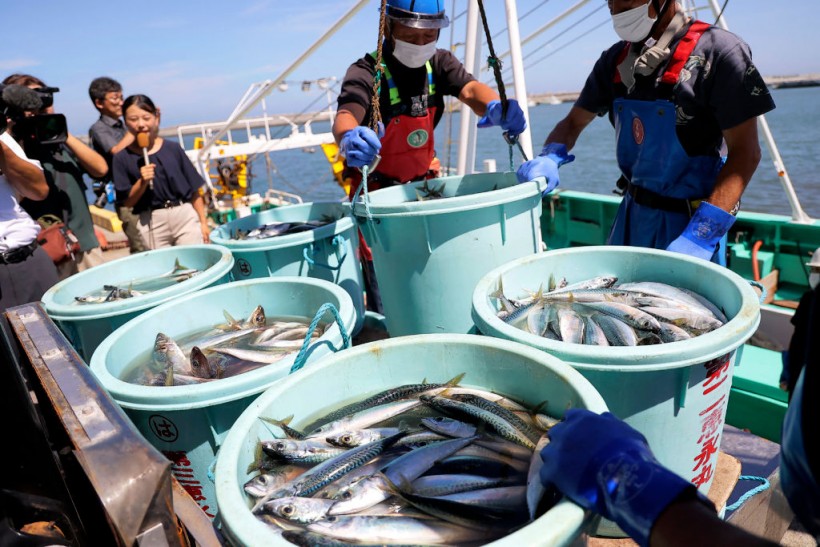The Japanese foreign ministry said late Monday, September 4, that it has complained to the World Trade Organization (WTO) over China's ban on seafood from Japan after the release of filtered water from the Fukushima nuclear facility.
WTO Talks With China and Japan

Fishery workers unload seafood caught in offshore trawl fishing at Matsukawaura port in Soma City, Fukushima prefecture on September 1, 2023, about a week after the country began discharging treated wastewater from the TEPCO Fukushima Daiichi nuclear power plant.
In a report by Reuters, China notified the WTO on August 31 that it was taking procedures to halt Japanese aquatic imports. Japan responded by saying it would clarify its viewpoints in relevant WTO bodies. It is urging China to promptly rescind the decision.
The US ambassador to Japan stated last week that the United States would assist Japan if it filed a complaint with the WTO. Some Japanese officials have indicated that this may happen.
Japan's Chief Cabinet Secretary Hirokazu Matsuno told reporters on Tuesday, September 5, that the country would address concerns about the safety of the released water in upcoming diplomatic forums such as the ASEAN Summit in Indonesia and the G20 Summit in India.
Japanese government spokesman Yoshihide Matsuno emphasized that "nothing is decided" with regard to a summit between Japan and China's top leaders. Unlike Chinese President Xi Jinping, Japanese Prime Minister Fumio Kishida and Chinese Premier Li Qiang will be present at both the ASEAN and G20 meetings.
Japan has also requested talks with China over the import embargo in accordance with the Regional Comprehensive Economic Partnership (RCEP) criteria, according to a separate statement released by the Japanese foreign ministry on Monday.
See Also: China's Seafood Ban Against Japan Could Greatly Benefit Russia-Here's How
The Seafood Market
In 2022, Japan shipped nearly $600 million worth of marine goods to China, making it the largest market for Japanese exports after Hong Kong. This is despite the fact that marine products only account for less than 1% of Japan's worldwide commerce, which is dominated by automobiles.
As reported by Tuesday's data, July saw a 23% year-on-year reduction in exports of aquatic items meant for China, at 7.7 billion yen ($52.44 million). This was the first annual decline in shipments to China in over two and a half years.
Shipments to China have been slowed by increased scrutiny at Japanese customs since Japan declared its intention to release the pristine Fukushima water.
In a separate report, more than 100 billion yen ($682 million) would be invested in Japan's domestic fisheries sector to help offset the impact of the lost seafood market.
As seafood sanctions against Japan persist, analysts think Russia's marine exports have greater potential in China.
Russia is drawn to China's enormous seafood market after the ban is implemented. Rosselkhoznadzor, Russia's food safety agency, said the Chinese market appears promising for fish goods.
Russia is one of China's top maritime goods suppliers. Over 890 Russian enterprises may export fish to Asia, according to Rosselkhoznadzor.
These Russian enterprises imported $15 billion in seafood in 2020. Russia exported 2.3 million metric tons of fish worth $6 billion in 2022.
See Also: China Allegedly Making Harassment Phone Calls to Japan-Is Fukushima Wastewater Release to Blame?








